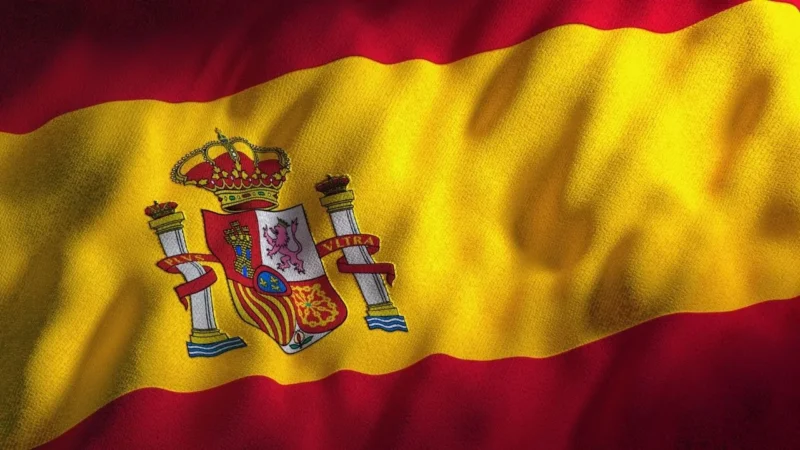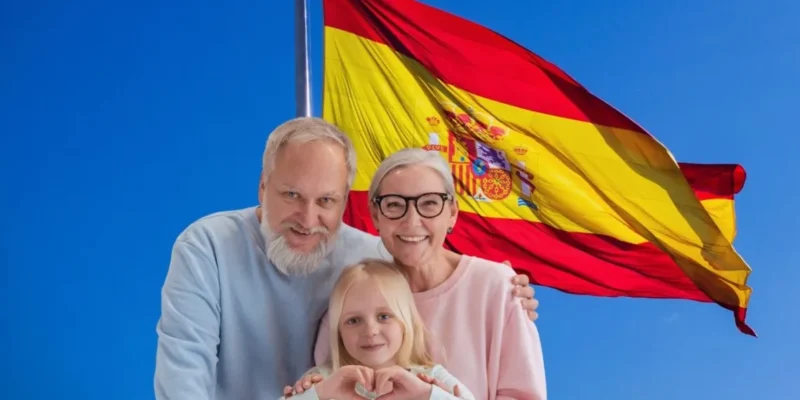Tracking a family tree is something I never thought I’d do, but in recent times, motivated by searching for the ancestors of my family roots. I discovered I’m the great-grandson of a Spaniard, something I knew about but didn’t have much information about.
I remember my maternal grandfather fondly because he was the first in my family to take me, for the first time, to a movie theater in the town of Delicias to see the American film King Kong. He told me stories about his Spanish ancestors, who were white, blond, and blue-eyed.
My grandfather Eliseo’s blue eyes and masculine beauty made him a very attractive man to the women he loved, although he only married once, to my grandmother Isabel, whose womb bore him 11 children from the Pérez Velázquez family. Each child of my maternal grandparents produced 25 children together, expanding the largest clan in my family. But to my surprise, blond, blue-eyed cousins began to arrive, whom I jokingly began to call “the Aryans” of the family tree.
I told my friends and acquaintances that these blonds are my Aryan family, despite my dark skin, inherited from my paternal line and the consequence of living under a sun as strong as that of the tropics, which burns your skin if you leave it uncovered, and if you love the sea, which is always close by because Cuba is an archipelago.
The stories of my great-grandfather are being told to me by the archives of the Gibara Church, the Bishoprics of Tenerife, and the National Archives of Cuba, in addition to the Ministry of Justice and the Immigration and Foreign Affairs offices, which offered me information about how my Spanish ancestor never renounced his Spanish citizenship. Even though he decided to continue living in this land after it ceased to be a colony of the Kingdom of Spain.
Great-grandfather Saturnino Víctor was tall, white, blond, and blue-eyed. He entered through the port of Havana and settled in Gibara, where he married in the Gibara Church. His story could well be told by a writer like Isabel Allende, because that magical realism created by the writer Gabriel García Márquez permeates my family.
Rafael Alonso, a dear Spanish journalist friend, always told me that I was Pérez from the Canary Islands and Ávila from the Peninsula, but I never gave much importance to this historical connection between my surnames and the Kingdom of Spain. A nation I have always admired for leaving us a universal culture and language.
I confess that I have traveled, although not as much as I would like, but my great dream has always been to visit Spain, because I know as much about its history as I do about my country’s.
Cubans have always felt an admiration for Spain, and we all know and enjoy the music of the melodious Julio Iglesias, Lola Flores and her famous clan, Raphael, Massiel, Nino Bravo, Camilo Sesto, Joaquín Sabina, Víctor Manuel, Ana Belén, José Carreras, Isabel Pantoja, and the current Enrique Iglesias, Alejandro Sanz, Pablo Alborán, David Bisbal, Rosalía, among other greats of its musical history.
We also enjoy great writers like Miguel de Cervantes and his ingenious Don Quixote, the poetry of Federico García Lorca, the beautiful texts of Benito Pérez Galdós, Lope de Vega, and Miguel Unamuno.
From Spanish culinary culture, we inherit delicious hot black bean stews, something unthinkable for a tropical country, but we devour them with gusto for the delicious flavors left by the garlic, onion, green pepper, oregano, bay leaf, cumin, salt, cilantro, black pepper, lemon juice, and the chorizo, bacon, and pork rinds that add an exquisite touch to the palate, along with malanga as a root vegetable.

My great-grandfather’s story is both beautiful and painful because he came seeking a better economic horizon. Spain, as a declining colonial empire, was impoverishing rural areas due to the wear and tear caused by maintaining its vast dominions in the Americas, North Africa, Southeast Asia, and the Western Pacific.
My great-grandfather signed the Treaty of Paris on December 10th, 1898, which ended the Spanish-American War and by which Spain relinquished its last colonial dominions over Cuba, Puerto Rico, the Philippines, and Guam. Cuba declared its independence in 1902 but remained under dominant US influence through the Platt Amendment.
I’m proud of my Spanish ancestors, although I didn’t inherit blond hair or blue eyes, but I did inherit the baldness of my Iberian great-grandfather and grandfather. But such is the lottery of genetics, which gives you the best and also the worst.
I will never forget that this ancestor in my family tree was the origin of my beautiful and diverse Hispanic-Cuban family with whom I have shared joy, love, sadness, pain, and the longing to visit the land of my Spanish origins.
He was the motivation, as a journalist, to write the novel about that young man who braved the sea and reached this land, considered by Christopher Columbus to be the most beautiful land ever seen.
- Fernández: Our Most International Pianist - 20 de February de 2026
- The Psychology of Love in Couples - 16 de February de 2026
- Love, the Fuel of Our Lives - 14 de February de 2026

